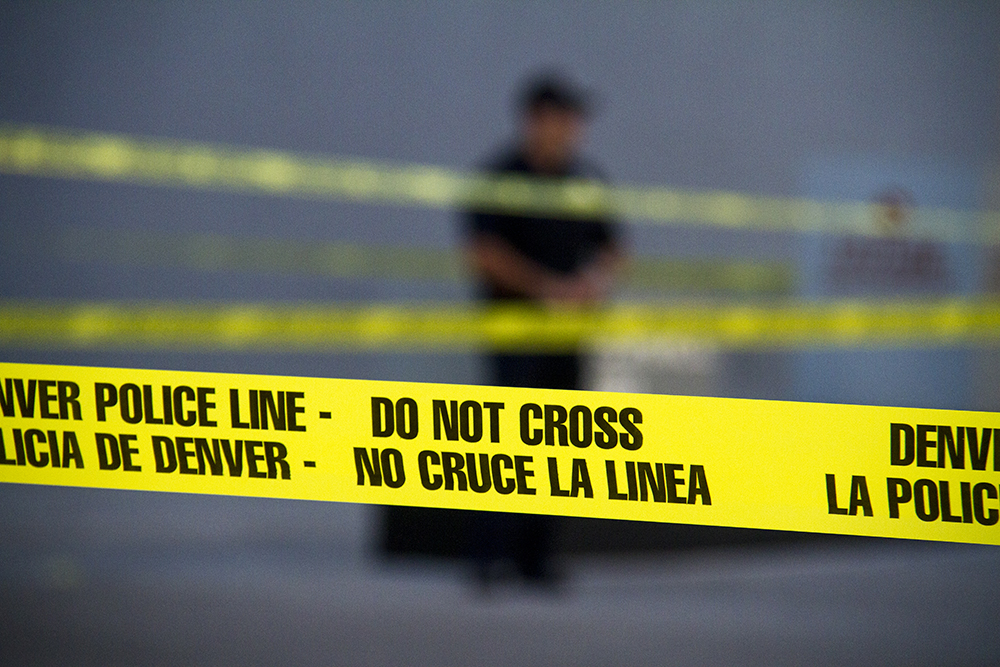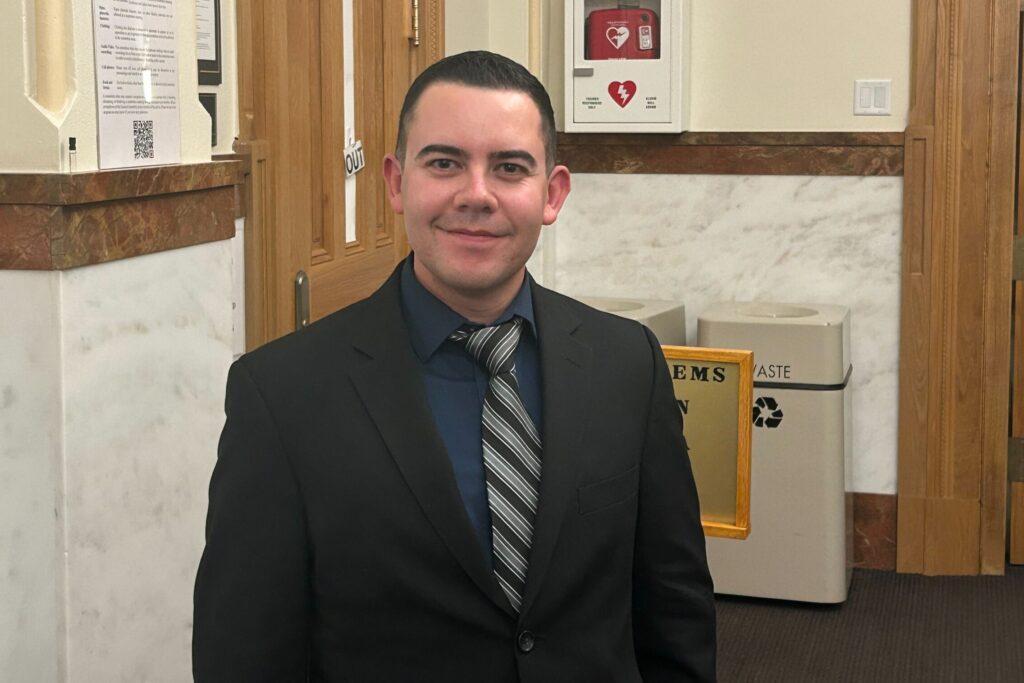
When Jesus Olivas was younger, his mother would take him to National Night Out events, activities meant to promote camaraderie between the community and the police. His mom said since then, all he’s ever talked about was wanting to be an officer.
“As I grew older, I understood what it means to be a police officer. So, I think it's a very noble profession and I'm looking forward to someday serving,” Olivas said recently.
But there’s one big hurdle between Olivas and that goal: he's is a Deferred Action for Children Arrivals (DACA) beneficiary.
His family immigrated from Mexico when he was a child in the mid-nineties. The 28-year-old is now a first-generation college graduate with a degree in criminal justice and a minor in psychology from Metropolitan State University of Denver.
Thanks to the work authorization granted by the program, he’s also been able to hold many jobs. But under federal law, he’s not allowed to possess a gun, which puts his goal of being a police officer out of reach.

Five years ago, Olivas applied and accepted a community officer position with the Lone Tree Police Department.
“He made it well known early on that he wanted to be a law enforcement officer and serve his community,” Lone Tree Police Chief Garret Wilson told the Colorado House Judiciary Committee Tuesday at a hearing on a bill that could determine whether Olivas ever gets that chance.
Olivas’s resume checks all the boxes as a potential police officer. But currently, he’s not likely to get very far.
“If you don't have your citizenship, usually that won't even get you to an interview. You're taken off the top of the list,” said Republican state Rep. Ryan Armogost who spent a decade as a deputy in the Larimer County Sheriff’s Department. “Whenever there's an opening with any reputable law enforcement agency, there's usually 300-ish applicants that will put in for maybe two or three open positions. So, that list whittles down very quickly.”
Armagost is working with Democratic state Rep. Cathy Kipp and state Sen. Julie Gonzales on HB 23-1143, which would seek federal permission to allow DACA recipients to carry firearms in order to work in law enforcement.
“We've heard time and time again that police departments and local law enforcement agencies are hurting for staffing,” Gonzales said. “And so, this to me seems like an opportunity for immigrants, DACA recipients, who want to step up and serve in order to be able to do so.”
Colorado isn’t the first state to consider allowing people without permanent legal status to become police officers. California passed a law last year to allow anyone authorized to work legally in the state to go into law enforcement. Wisconsin considered a similar bill but ultimately voted it down.
According to Armagost, the idea for the bill started when the Greeley Police Department tried to hire a DACA recipient in November 2021.
As Greeley Police Chief Adam Turk explained at the bill hearing, “the gentleman made it through an extensive amount of testing to get to our background stage. And then we worked with POST (Peace Officer Standards & Training) and our city attorney's office before we went any further in the testing where we learned that the DACA recipient would not be able to carry a gun as a matter of their daily duties.”
Colorado’s POST board is a unit of the Criminal Justice Section at the Attorney General’s Office that documents and manages the certification and training of all active and reserve peace officers in the state.
In order to be POST-certified, an officer must complete nine months of training and log a certain number of hours in firearm training, community policing, and bias-free policing. Most aspiring officers complete the training part-time during the nights and weekends.
Armagost believes including DACA recipients on police forces will benefit immigrant communities.
“Especially in my district, where there's a very diverse community, a lot of Spanish-speaking (people) in Weld County and Larimer County. So having more Spanish-speaking officers is a huge benefit,” Armagost said. “This is something that I think would bring in not just diversity, but also help to bridge that language barrier for citizens that are in distress and things like that.”
The House Judiciary Committee approved the bill 10-2 with one member excused. State Reps. Bob Marshall, a Democrat, and Gabe Evans, a Republican, were the two no votes. State Rep. Matt Soper was excused. After the vote, Olivas said he was pleased with the outcome.
“I know that the DACA recipients in specific are a well-known group of immigrants here in the United States that both parties, both Democratic and Republicans, can work with,” Olivas said. “I'm glad that this type of a bill is able to help people like me become police officers as it's always been my dream.”
The bill is still at the beginning of its legislative journey; it goes next to the House Appropriations Committee. If it passes there, it will be considered by the full House.
Editor's Note: An earlier version of this story misspelled Sen. Gonzales' first name. It has been corrected.









